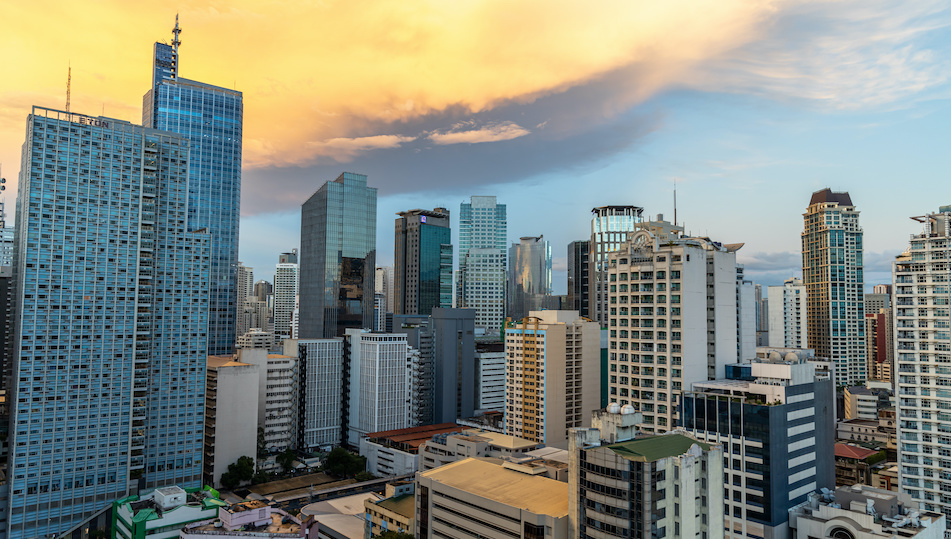




Monthly Recap: BSP to outpace the Fed in rate cuts
 DOWNLOAD
DOWNLOAD

Quarterly Economic Growth Release: 5.4% Q12025
 DOWNLOAD
DOWNLOAD

Policy rate views: Uncertainty stalls cuts
 DOWNLOAD
DOWNLOAD


TOP SEARCHES
MIF’s governance structure needs improvement — analysts

By Luisa Maria Jacinta C.Jocson, Reporter
IMPROVING the governance structure of the Maharlika Investment Fund (MIF) and ensuring the financial stability of the contributing state banks should be among the top priorities of the government’s review of the law’s implementing rules and regulations (IRR), analysts said.
“One clear provision that needs to be considered is the insulation of the MIF from government interference,” Ateneo de Manila University economics professor Leonardo A. Lanzona said in an e-mail.
He noted a crucial element of the Santiago principles on sovereign wealth funds (SWFs) is the independence of the board, “ensuring that investment vehicles can operate independently, and investment decisions are based on financial considerations rather than political or short-term interests.”
“The very act of the President suspending the MIF implementation because of its organizational structure, specifically the composition of the board members, of the fund is itself a violation of this principle,” Mr. Lanzona said.
President Ferdinand R. Marcos, Jr. last week suspended the MIF law’s IRR in order to improve its organization structure and make it as close to “perfect and ideal as possible.”
Mr. Marcos also clarified the suspension would not impact on the MIF’s target to begin operations by the end of the year.
The economic team said they are working with the Office of the President to review the MIF rules. However, the government has yet to specify which exact provisions from the IRR need revision.
“The suspension of the Maharlika fund IRR is only the latest stain on the Marcos Jr. administration’s ill-conceived pet economic project. It doesn’t help that the purported reason for improving its organizational structure is so vague,” Sonny A. Africa, executive director of think tank Ibon Foundation, said in a Viber message.
“Astute investors will note that the fund’s very conception is reflective of the poor standards of governance in the country, which in turn does not give confidence that fund management will not be similarly afflicted,” he added.
Under the MIF law, the Maharlika Investment Corp. (MIC) is tasked to manage the wealth fund. The board will consist of the president and chief executive officer (CEO) of the MIC, the president and CEO of the Landbank of the Philippines (LANDBANK) and the Development Bank of the Philippines (DBP), as well as the two regular directors and three independent directors from the private sector. The Finance secretary will serve as the board chairperson in ex-officio capacity.
Mr. Africa said that the board of directors should consist of less government officials and include more private sector representatives. He recommended that only two to three of the nine-member board should come from the government.
“The extremely politicized internal governance structure is a glaring problem. If the government has any seriousness in removing doubts about the fund’s independence, transparency and accountability, it should err on the side of overcompensating,” he added.
Mr. Africa also said private firms should be in charge of the headhunting and that appointments can be made by the government, just not by the President alone.
“The President has so much political and economic power as it is and appointments to the board and its officers, risk management committee and advisory body can be made by someone else. Even the choice of officials can be made by private executive search firms,” he said.
The deadline for the nomination and application of the MIC president and CEO, independent directors, and regular directors closed on Sept. 27. Under the law, Mr. Marcos will then make an appointment based on the shortlisted candidates.
Mr. Lanzona said that allowing the government to design the MIC’s organization structure “creates the risk of political pressure influencing financial decisions, rather than allowing the fund to operate independently based on financial considerations.”
“While the funds are public in nature, the government’s role should only be limited to providing a clear roadmap for the operations of the MIF and ensuring that it aligns with the government’s intentions and the interests of the public,” he added.
Mr. Lanzona also called for more transparency on how the fund will be managed.
“The public needs to see the financial statements as well as the assets and liabilities of these banks to judge whether the operations and integrity of these banks are being compromised by its remittances to the MIF,” he added.
Mr. Africa also noted that much of the MIF’s capital is coming at the expense of weakening government financial institutions (GFIs).
“GFIs should not be made to contribute to begin with and regulations should not be tweaked to stop MIF contributions from undermining capital adequacy ratios,” he said.
The LANDBANK and DBP are required to contribute P50 billion and P25 billion, respectively, for the MIC’s P125-billion initial funding.
After they made the remittances, the DBP and LANDBANK sought regulatory relief from the Bangko Sentral ng Pilipinas (BSP) from its minimum capital requirements.
The Department of Finance (DoF) on Sunday reiterated that both banks “maintain their solid financial positions” despite their contributions to the fund.
“We are continuously talking to all stakeholders involved in order to ensure the best possible outcome for the Fund. Both LANDBANK and DBP are resolute in their commitment to responsible financial management and shall have proper representation in the board,” DoF Secretary Benjamin E. Diokno said in a statement.
Mr. Diokno also clarified the banks’ contributions to the fund are taken from their investible funds and not from the loanable funds to farmers and other sectors.
Terry L. Ridon, a public investment analyst and convenor of think tank InfraWatch PH, said that the suspension of the IRR will allow the government to study the actual impact on the state banks.
“This is critical as the nation cannot afford both the LANDBANK and DBP facing viability concerns at this time of limited fiscal space. However, as soon as the banks’ financial situation becomes clearer in the next few months, the government can dive right ahead towards focusing on MIF investing in its priority areas,” he said in an e-mail.
The DoF on Sunday also said that there has been “robust interest” in the MIF from Saudi Arabia investors.
Mr. Diokno met with Saudi businessmen to promote the MIF on Oct. 19 in Riyadh, Saudi Arabia on the sidelines of the Southeast Asian Nations – Gulf Cooperation Council Summit.
“Maharlika seeks to work with other sovereign wealth funds, both as an investment partner and peer in the global sovereign wealth fund community. We look forward to exchanging views and learning from the best practices of top-of-class funds, such as those here in Saudi Arabia,” Mr. Diokno was quoted saying in the statement.
This article originally appeared on bworldonline.com





 By BusinessWorld
By BusinessWorld